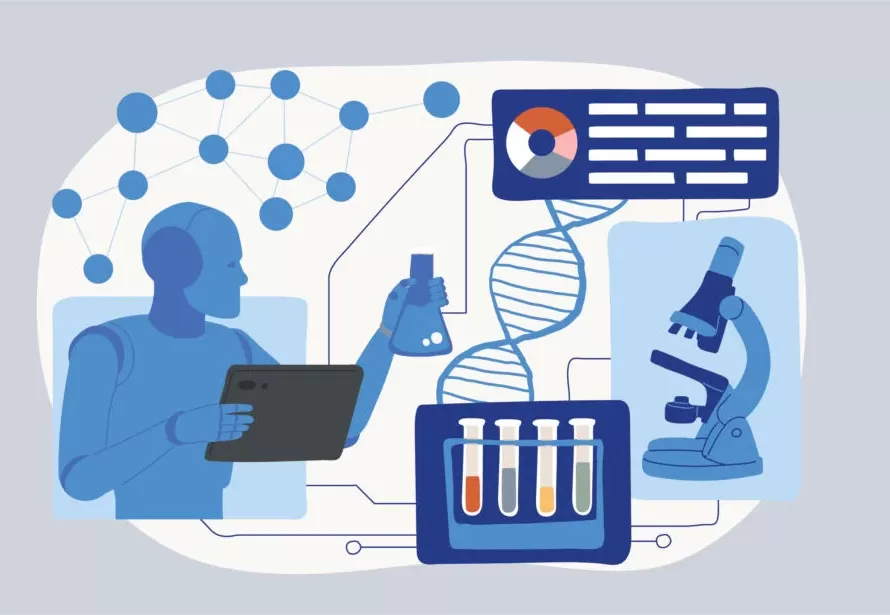Overview
The pharmaceutical industry is increasingly shifting towards a patient-centric approach, aiming to tailor treatments to individual needs and improve overall patient outcomes. Central to this transformation is Generative AI (Gen AI), a powerful technology that enables the personalization of healthcare on an unprecedented scale. By leveraging vast amounts of data and advanced algorithms, Gen AI is redefining patient care, making treatments more effective and precisely targeted.
Challenges In Patient-Centric Care
- Diverse Patient Populations: Patients vary widely in their genetic makeup, medical histories, and responses to treatments. This diversity presents a challenge in developing therapies that are effective for everyone.
- Complex Data Integration: Integrating and analyzing the vast amounts of data required for personalized care—such as genomic data, electronic health records (EHRs), and lifestyle information—is complex and resource-intensive.
- Regulatory and Ethical Considerations: Ensuring patient privacy and meeting regulatory standards while developing personalized treatments adds another layer of complexity.
How Generative AI Is Helping
- Genomic Analysis and Precision Medicine: Gen AI can analyze genomic data to identify biomarkers and genetic variations that influence how patients respond to different treatments. By understanding these genetic factors, pharmaceutical companies can develop precision medicines tailored to specific patient groups, increasing the effectiveness of treatments and reducing adverse effects.
- Integration of Diverse Data Sources: Generative AI excels at integrating and analyzing diverse data sources, including EHRs, medical imaging, and patient-reported outcomes. This comprehensive analysis provides a holistic view of a patient’s health, enabling the development of personalized treatment plans that consider all aspects of their condition.
- Predictive Modeling for Personalized Treatment: AI-driven predictive models can forecast how individual patients are likely to respond to various treatment options. By simulating different scenarios, these models help healthcare providers choose the most effective and safest therapies for each patient, improving outcomes and patient satisfaction.
Case Study
One notable example of Gen AI in patient-centric care is Tempus, a technology company focused on precision medicine. Tempus uses AI to analyze clinical and molecular data at scale, providing insights that help tailor treatments to individual patients’ genetic profiles. By combining genomic sequencing with AI-driven data analysis, Tempus aids oncologists in selecting the most appropriate therapies for cancer patients based on their unique genetic makeup. This personalized approach has led to improved treatment outcomes and enhanced patient care.
Benefits Of Generative AI In Patient-Centric Care
- Enhanced Treatment Efficacy: Personalized treatments developed through Gen AI are more likely to be effective, as they are based on an individual’s unique genetic and clinical profile. This targeted approach reduces trial and error in treatment selection, leading to quicker and better patient outcomes.
- Reduced Adverse Effects: By considering individual genetic factors and predicting responses to treatments, Gen AI helps in minimizing adverse drug reactions. This not only improves patient safety but also enhances the overall treatment experience.
- Improved Patient Engagement: Personalized care plans foster better patient engagement and adherence to treatment regimens. When patients receive treatments tailored to their specific needs, they are more likely to understand and follow their healthcare provider’s recommendations.
Conclusion
Generative AI is at the forefront of the shift towards patient-centric care in the pharmaceutical industry. By enabling the development of personalized treatments that consider the unique characteristics of each patient, Gen AI is enhancing the effectiveness of therapies and improving patient outcomes. As this technology continues to evolve, it holds the promise of transforming healthcare into a more personalized, precise, and patient-focused field. The future of medicine lies in the ability to tailor treatments to the individual, and Generative AI is making that future a reality today.




